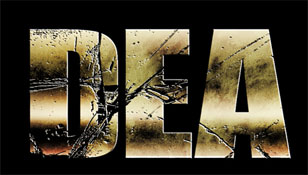
Leaked cables show that the US Drug Enforcement Administration (DEA) has been transformed into a global network for intelligence gathering and eavesdropping worldwide, PressTV reported.
According to the classified documents published by WikiLeaks, the DEA has expanded far beyond its mandate to engage in intelligence gathering, The New York Times reported.
One cable reported that Panamanian President Ricardo Martinelli asked the DEA to use its wiretapping program and help him spy on political opponents.
Martinelli sent a "cryptic" message to then US Ambassador to Panama Barbara Stephenson, which said, "I need help with tapping phones."
"He made reference to various groups and individuals whom he believes should be wiretapped, and he clearly made no distinction between legitimate security targets and political enemies," the cable written by Stephenson said.
When the US ambassador refused to pay much heed to it, Martinelli made an implicit threat to stop helping Washington with anti-narcotics operations in the Latin American country.
Meanwhile, President Martinelli has denied that he had pressed the DEA to help install phone taps on his political rivals.
"The Panamanian government regrets the misunderstanding by the US authorities. The request for assistance was made for the struggle against crime, drug trafficking and organized crime," a statement issued by the presidential office on Saturday read.
A scandal over wiretapping could enormously damage the popularity of Martinelli -- a supermarket tycoon elected last year. He currently has a nearly 60 percent approval rating.
A cable from February 2010 shows that Paraguay sought wiretapping services from DEA. It further said that when US diplomats resist the request Paraguay Interior Minister Rafael Filizzola threatened to shut down DEA operations in the country.
The envoys finally agreed to allow wiretapping for anti-kidnapping work under certain circumstances.
Department of Monitoring
Kavkaz Center





















